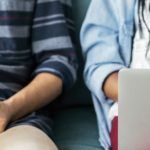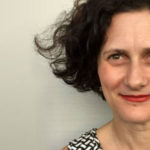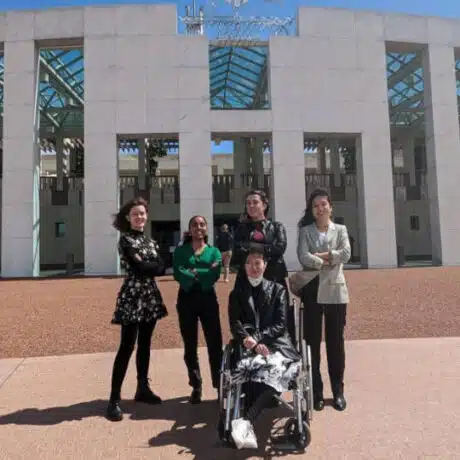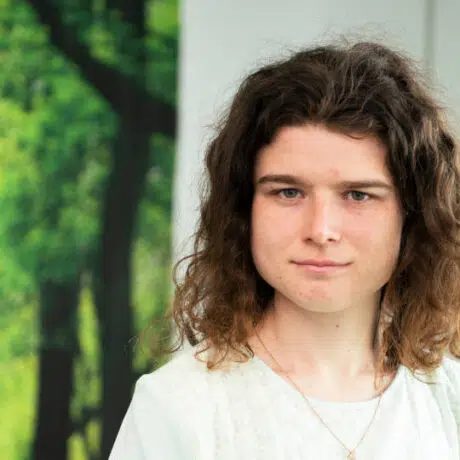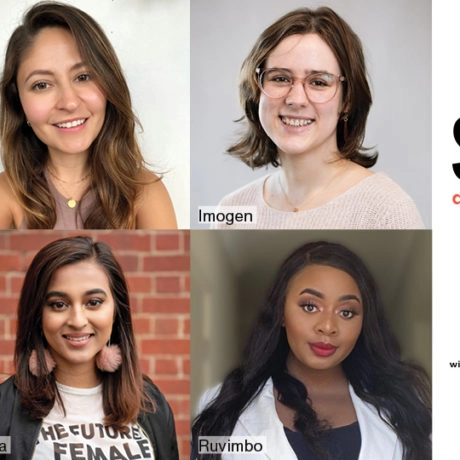News and Stories - Youth - 7 March 2018
Role models for young women who want to change the world
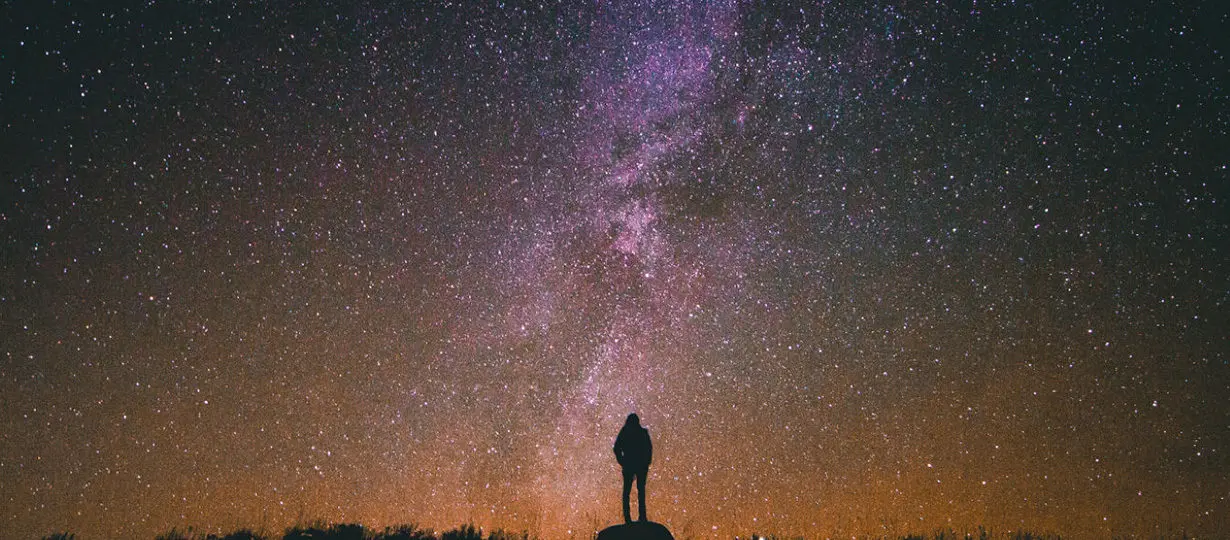
Our role models play an important role in shaping our dreams and ambitions. For many kids the under-representation of women, people from diverse backgrounds and young people in many fields means it can be hard to see themselves reflected in the people living their dreams.
For International Women’s Day, we spoke to women blazing trails in their field, to show our daughters (and sons!) that no matter their background, their skills or their gender, they can take on the world.
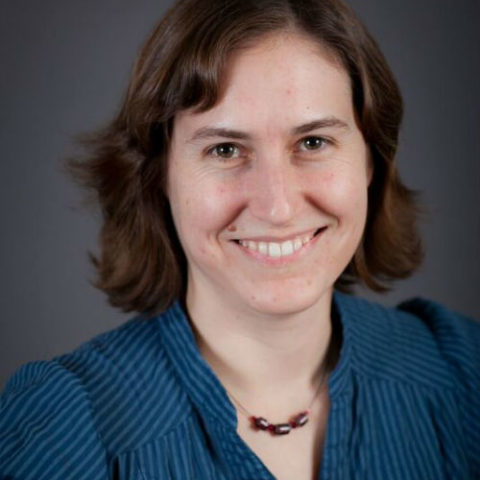
Katie Mack
Theoretical Astrophysicist
Katie’s work is all about exploring how the universe began, how it might end, what it’s made of, dark matter, dark energy, black holes, galaxies ‘and all of that fun stuff.’ She’s been vocal on addressing climate change, so much so that this glorious shut down went viral on Twitter.
How did you get into astrophysics?
I’ve always been interested in how things work. When I was a little kid I was always taking things apart, trying to understand them, and physics is a great way to try and understand things better.
I’ve always been interested in the big questions like where everything comes from and how it all fits together in the grand scheme of things.
When I was probably 10 years old, I learned about black holes and spacetime and I thought that sounded fascinating. When I studied physics in college, it seemed like all of the really interesting questions in physics had to do with space, so I studied astrophysics, got my PhD in that, and then did a bunch of research on all those big questions.
What global issues you want to see fixed in your lifetime?
I think that obviously one of the most pressing things is climate change.
I think that that’s important for a lot of different reasons. It changes how we humans live in the world but it’s also changing the environment for other species. And it makes a lot of the problems that already exist in the world a lot worse.
What would you say to a girl who wanted to pursue a career like yours?
For a career like mine, the main thing is getting as much education in physics and math as possible. Learning physics, learning technological skills, programming, math – all that can set you up for any number of careers.
A lot of people think ‘oh I’m not a science person’, ‘oh I’m not a math person.’ You don’t have to have a particular kind of brain to get good at mathematics. It’s a matter of practice, like learning a language.
I think one of the biggest misconceptions people have is that there’s nothing creative or social about going into the sciences and that’s really not true at all. It’s all about making new connections and thinking about things in a different way.
Who has helped you to get to where you are today?
I’d say my mom has been one of the most important people. She always encouraged me when I was a little kid to study physics and to pursue my passions. She’s really into science fiction, so she exposed me to that when I was pretty young. If there was a famous physicist giving a talk in our city, she’d drive me to the talk. And she’d take me to the observatory, and we’d go look at meteor showers and stuff like that.
Who is your role model?
When I was a little kid and I was starting to learn about physics I wanted to be like Stephen Hawking. He was my role model in the sense that I wanted to do exactly his kind of work: I wanted to study black holes and the big bang, and maybe write a book about it all someday.
In a sense that was a good choice – I am studying things like the big bang and black holes and I’m even writing a book now for the general public about some of those ideas.
I didn’t know many theoretical physicists when I was a kid, there weren’t many that were household names. I’ve been fortunate enough to meet Hawking and hang out in the same circles as him a little bit because I spent some time in Cambridge University where he’s based, so that was kind of cool. Not everyone gets to meet and hang out with their role models.
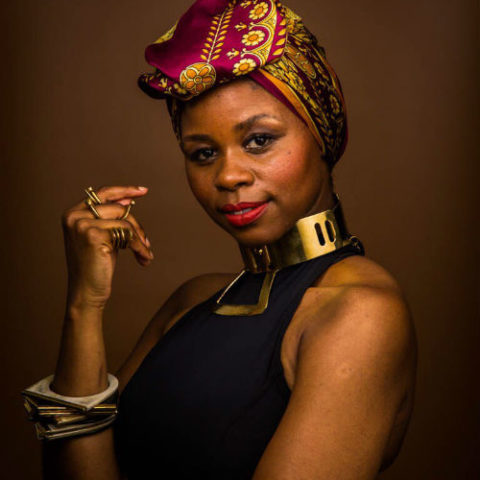
Dorcas Utkovic
Founder and host of OZ African TV
Born in South Africa, Dorcas champions women and multiculturalism particularly through her work in film and television. As the founder and presenter of Oz African TV she has been recognised with a Media Award by the Victorian Multicultural Commission.
What issues do you see in Australia and globally that you want to see fixed in your lifetime?
I would like to see us all realise that by celebrating one’s self, it doesn’t mean you undermine others – it means just that – celebrating one’s self.
That every life is important and each of us has a story that deserves to be heard. I would like to see the veil of marginalisation removed to include diverse people at the right tables. I would like to not worry about my daughter’s safety or her ability to express herself fully and be in control of her entire being. I would like to rest easy knowing that my son understands that being a man does not mean you are in competition with women.
What would you say to a girl and her parents who wanted to pursue a career like yours?
No matter how far-fetched your aspirations may seem, the truth is, if it lives in your heart you can do it so start NOW where you are with what you have. And always remember ‘The sky is big enough for all the birds of the air to fly’ – African Proverb.
So there’s always enough room for all of us to thrive in our passion.
What would you say to your twelve year old self now?
Baby girl, you are on your way towards incredible things.
You will be among the change makers in the world, so don’t be afraid. Let your passion lead you especially when you meet challenges. You will fall a few times, but giving up is not an option because you are here to shine and lead the way for many.
Who is your role model?
Besides my parents, Oprah Winfrey. She is the epitome of where passion and hard work can lead you no matter who you are or where you’re from.
Who has helped you to get to where you are today?
If I start a list I would never finish! But my parents are at the top of my list. They believe in me no matter how crazy my ideas may seem. They brought us up to believe in ourselves and that we can become anything we put our mind to. I choose them here because it doesn’t matter how much material help one gets to pursue their goal, it always come back to being grounded in order to realise and indeed appreciate all the other help along the way – and there’s a lot of help along my way.
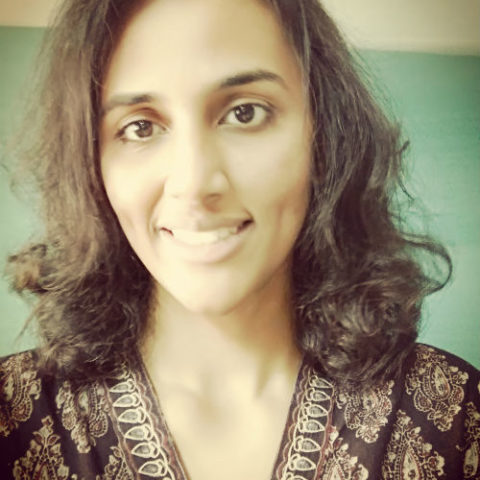
Kirthi Jayakumar
Founder of the Red Elephant Foundation
Lawyer, writer, editor, activist and artist, Kirthi is a powerhouse driving social change particularly for women in India. As founder of the The Red Elephant Foundation she works for gender equality and civilian peacebuilding through storytelling, digital interventions, tech-for-good and hands on training. She even taught herself to code, creating the app Saahas to tackle gender-based violence.
What is it that drives you?
My passion for my work comes from a place of great selfishness. I see a world of peace, a world free of violence, a world free of hate and a world with equality as a world that will have a place for me, and my inner child.
I have been bullied, I have faced discrimination on everything from the way I looked to my choice to enjoy and engage with my academics, from the way I walked to the way I would chew my food –I know what it is like to be at the receiving end. Somewhere, the goal is to try to find a place where many futures are built from a foundation of peaceful presents.
What would you say to the parents of a girl who wanted to pursue a career like yours?
She deserves to do it, so don’t stop her. As parents, you brought her into the world. Don’t clip her wings, let her fly. She wasn’t meant to sit back and do nothing.
What challenges have you faced in pursuing your passion? How do you deal with failure or setback?
One of the most significant challenges is social resistance to the ideas of gender equality and peace.
People who cling to power are what causes inequality and they feel threatened when their power is being taken away. So to address them, we need to incentivise them to see that they have a greater benefit to receive from a future built on equality and peace. Failure and setback are just two words in the dictionary. I firmly believe that I will gain from every experience: either success, or a lesson.
When you were 12, what did you want to be when you grew up?
I remember reading The Diary of Anne Frank and deciding that I wanted to be someone who would prevent things like the Holocaust from happening in the world, again.
I didn’t know who did that – because no one I asked had a name for a profession or a job for a person who did that. But I decided that that would be it.
Who is your role model?
Anne Frank. She was a girl of great conviction, strength, resilience and wisdom. Her diary teaches me even today.
Who has helped you to get to where you are today?
My parents and brother, and without her knowing it, Anne Frank.
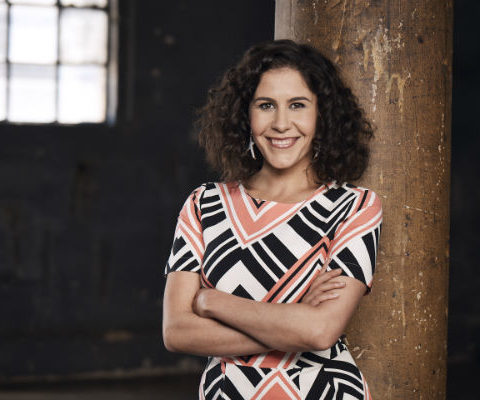
Jan Fran
Host of SBSVICELAND’s The Feed
Plan International Australia Ambassador
Jan is a journalist, presenter, emcee and social commentator. She’s also very funny. As well as highlighting the ridiculous side of the news Jan has used her incredible story-telling skills to bring the big, important stories from across the globe to our screens. She’s also one of Plan International’s ambassadors, so we think she’s pretty awesome.
What is it that drives you?
The constant desire to be better and to learn more. Oh and money (let’s not lie here).
What issues do you see in Australia that you want to see fixed in your lifetime?
I’d like to see tougher laws and penalties for ‘revenge porn’ or image based abuse. I’d like to see developers working with police and community originations to develop new ways to make sure these pages get taken down and that people are brought to account for sharing images of people without their consent.
On that – I’d like for consent to be taught in schools, I’d like for abortions in QLD and NSW to be decriminalised.
I’d like to – at the very least – start a serious national conversation about the roles men play in the home. Right now we hear more about women at work but nothing about men in the home, they’re different sides of the same coin.
I’d like to see Australia invest more in renewable, clean energy.
I’d like to see new online social platforms emerge to combat the polarisation of Facebook and shrillness of Twitter – a place where nuanced discussions can thrive.
What would you say to your twelve-year-old self now?
I would say surround yourself with people who are going to add value to your life.
I got given some great advice on my first day of high school. If you’re an apple, there are always going to be people who don’t like apples. So you change to a banana but there are always going to be people who don’t like bananas. So you change again to an orange but there will always be people who don’t like oranges.
There will ALWAYS be people who don’t like you! So don’t worry about it and just be yourself.
Who is your role model?
A few people I admire are author and commentator Jamila Rizvi and Meshel Laurie for their laid back, intelligent presenting style.
American late night host Samantha Bee because she’s the only woman to be a US late night host.
Canva founder Melanie Perkins.
Sarah Wilson because she’s built and empire, talks about anxiety openly and was super accommodating when I called her up for a uni project once (I’ve never forgotten that. Thanks Sarah!)
W. Kamau Bell, Louis Theroux and Sarah Silverman and John Safran because I like their doco presenting style.
Mehreen Farqui for pushing for the decriminalisation of abortion in NSW.
Who (if anyone!) has helped you to get to where you are today?
A lot of people. My friend, Yaara, who provided a great example how talent and hard work pays off. My partner, Al, who looks over everything I write and makes it better. My sisters who are my most honest critics. My bosses who recognised and nurtured my talents and a select few friends who were always ready to share their industry contacts and expertise with me.
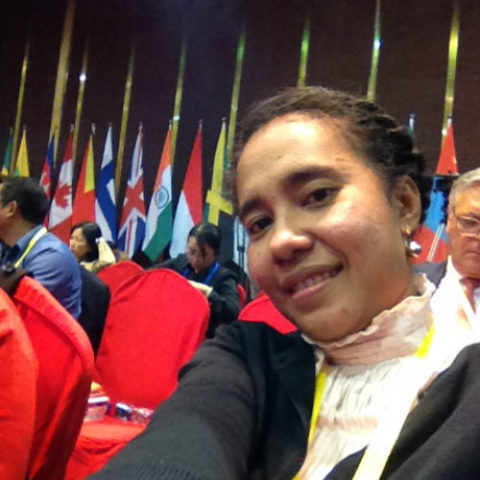
Dillyana Ximenes
Country Director, Plan International Timor-Leste
Dillyana is a trailblazer in her field. Our very first Timorese country director, the mother-of-three is widely respected by her colleagues. She works with the community, mothers, fathers, local leaders, national leaders and ‘most importantly’ girls and boys and young people, to better support them though Plan International’s work.
Tell us a little about yourself.
I am the only girl in my family and the oldest, I grew up in the environment which has lots of affection among parents and children and also the extended family members. Even among neighbours we also have good relations.
I enjoyed complete formal education setting from preschool until university so I really support the education of children especially girls.
What issues do you see in Timor-Leste that you want to see fixed in your lifetime?
Enabling an environment for girls and boys (especially girls) under eight so they can have timely and proper care, stimulation and development including health, education and participation.
This is important because Timor-Leste has one of the highest levels of malnutrition and also a high stunting rate for children under five. Timor-Leste is also a post-conflict country so the violence practice at home, schools and also community still remains an issue.
What is it that drives you?
My only driver is as a mother and woman. I can see that mothers and also fathers play the most important role in providing early, timely and proper care, stimulation, development and also protection to their children.
There are some fundamental things which Timor-Leste needs to be better at and strengthen, so we can better prepare the next generation of strong and capable leaders for their self, family, community and nation.
What would you say to a girl (and her parents!) who wanted to pursue a career like yours?
First I will talk to fathers: as you can see nowadays more women have important positions and show their capacity, power and success. So learning from that, please do not be afraid anymore about the future of your girls. The important things to remember and to do are very simple:
Believe in your girl’s power and capacity
For that you need to give her opportunity: to go to schools, be involved in various activities at church, school and at a community level
Listen and communicate with them
Allow them to make mistakes and help them learn from that.
Secondly to mothers: I believe your heart always wants your daughter to have a higher education than you, a better future than you. Don’t worry, the important things which you can do are to continue to support, talk with them, listen to them, be there when they need hugs, accompany them in their difficult moments and not to blame them, and you will see how strong they are and they can lead and decide for their future.
Third to girls: Do not be afraid to ‘dream big’ because you can achieve it if you try your best. All you should do is take many opportunities and don’t be afraid to fail because you will learn a lot when you fail. Don’t worry if you make mistakes. Many great people make mistakes and I make mistakes, but when we make mistakes we need to learn from that so we can do better. Believe in yourself, nothing is easy but there is nothing we cannot achieve when we know what we want and what to do.
What would you say to your twelve year old self now?
Just be yourself, learn a lot, fail, make mistakes but learn from that and believe in yourself.
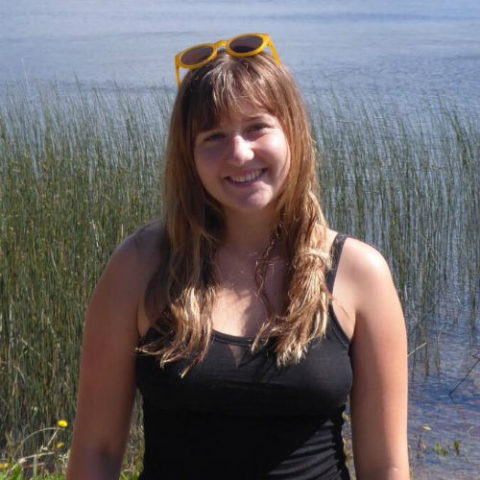
Chloe Malmoux-Setz
Plan International Youth Activist Alumni
Chloe is one of our Youth Activist alumni, which basically means: ‘I am a Gender Equality Youth Activist for the world’. A passionate feminist, Chloe is dedicated to stamping out inequality so that everyone can thrive.
What is it that drives you?
I see inequality around me every day and see how it restricts people from seizing opportunity, holding them back when they deserve to be thriving. Everyone deserves equal opportunity. Privilege or gender should not get in the way of people exploring their true potential. This is my driving force.
What challenges have you faced in pursuing your passion?
In pursuing this passion and being a feminist, I have faced constant criticism, stigmas and disrespect.
What gives me hope to continue standing up for myself or the cause I am supporting is knowing that someone is watching me and will potentially be inspired to do the same.
What do you think makes someone a good citizen of the world?
I think, as humans, in a community of people, we are always influencing each other and creating large ripple effects that we don’t even know are happening.
I think we should seize this impact and make it a positive one, where we all become role models, and good citizens. I work with children in a primary school and I try to role model respect, as well as, display amazing people who help change the world to be a better place.
What would you say to your twelve year old self now?
When talking to 12 year old girls, I actively try to encourage and empower them to follow their dreams no matter how crazy they are.
This is because I wish I had been told at 12 years old that I could do anything, as there is no way of knowing you can’t do it without trying.

